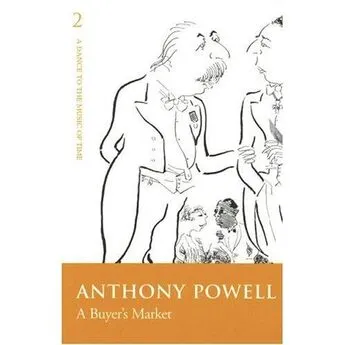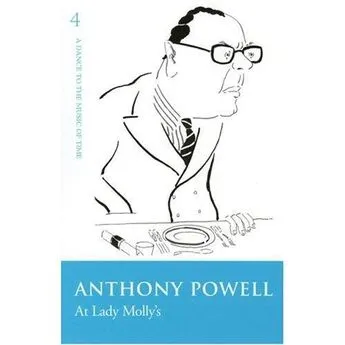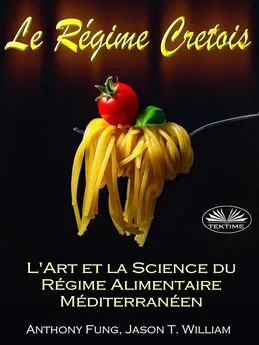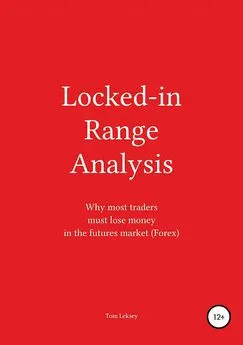Anthony Powell - A Buyers Market
- Название:A Buyers Market
- Автор:
- Жанр:
- Издательство:Arrow
- Год:2005
- ISBN:нет данных
- Рейтинг:
- Избранное:Добавить в избранное
-
Отзывы:
-
Ваша оценка:
Anthony Powell - A Buyers Market краткое содержание
Anthony Powell's universally acclaimed epic A Dance to the Music of Time offers a matchless panorama of twentieth-century London. Now, for the first time in decades, readers in the United States can read the books of Dance as they were originally published-as twelve individual novels-but with a twenty-first-century twist: they're available only as e-books. The second volume, A Buyer's Market (1952), finds young Nick Jenkins struggling to establish himself in London. Amid the fever of the 1920s, he attends formal dinners and wild parties; makes his first tentative forays into the worlds of art, culture, and bohemian life; and suffers his first disappointments in love. Old friends come and go, but the paths they once shared are rapidly diverging: Stringham is settling into a life of debauchery and drink, Templer is plunging into the world of business, and Widmerpool, though still a figure of out-of-place grotesquerie, remains unbowed, confident in his own importance and eventual success. A Buyer's Market is a striking portrait of the pleasures and anxieties of early adulthood, set against a backdrop of London life and culture at one of its most effervescent moments.
A Buyers Market - читать онлайн бесплатно полную версию (весь текст целиком)
Интервал:
Закладка:
“Really,” said Mr. Deacon, as if entitled to feel honest disgust at this development, “Mrs. Andriadis does not seem to care in the least whom she makes friends with.”
“Who is he?”
“Max Pilgrim — a public performer of some sort.”
The young man now began to sing in a tremulous, quavering voice, like that of an immensely ancient lady, though at the same time the words filled the room with a considerable volume of sound:
“I’m Tess of Le Touquet,
My morals are flukey,
Tossed on the foam,
I couldn’t be busier;
Permanent waves
Splash me into the caves;
Everyone loves me as much as Delysia.
When it’s wet on the Links, I know where to have a beau
Down in the club-house — next door to the lavabo.”
There was muffled laughter and some fragmentary applause, though a hum of conversation continued to be heard round about us.
“I don’t care for this at all,” said Mr. Deacon. “To begin with, I do not entirely understand the meaning of the words — if they have any meaning — and, in the second place, the singer once behaved to me in what I consider an objectionable manner. I can’t think how Mrs. Andriadis can have him in the house. It can’t do her reputation any good.”
The appearance of Max Pilgrim at the piano had thoroughly put out Mr. Deacon. In an attempt to relieve the gloom that had fallen on him I inquired about Mrs. Andriadis’s past.
“Barnby knows more about her than I do,” he said, rather resentfully. “She is said to have been mistress of a Royal Personage for a time. Personally I am not greatly stimulated by such revelations.”
“Is she still kept?”
“My dear boy, you have the crudest way of putting things,” said Mr. Deacon, smiling at this, and showing signs of cheering up a little. “No — so far as I am aware — our hostess is no longer ‘kept,’ as you are pleased to term the former state of life to which she was called by Providence. A client of mine told me that her present husband — there have been several — possessed comprehensive business interests in Manchester, or that region. My friend’s description suggested at least a sufficient competence on the latest husband’s part for the condition of dependence you mention to be, financially speaking, no longer necessary for his lady — even, perhaps, undesirable. Apart from this, I know little of Mr. Andriadis, though I imagine him to be a man of almost infinite tolerance. You are, I expect, familiar, with Barnby’s story of the necklace?”
“What necklace?”
“Milly,” said Mr. Deacon, pronouncing Mrs. Andriadis’s name with affected delicacy, “Milly saw a diamond-and-emerald necklace in Cartier’s. It cost, shall we say, two million francs. She approached the Royal Personage, who happened to be staying at the Crillon at that moment, and asked for the money to buy herself the necklace as a birthday present. The Royal Personage handed her the banknotes — which he was no doubt accustomed to keep in his pocket — and Milly curtsied her way out. She went round the corner to the apartment of a well-known French industrialist — I cannot remember which, but you would know the name — who was also interested in her welfare, and requested him to drive there and then to Cartier’s and buy the necklace on the spot. This the industrialist was obliging enough to do. Milly, was, therefore, two million francs to the good, and could, at the same time, give pleasure to both her protectors by wearing the necklace in the company of either. Simple — like all great ideas.”
Mr Deacon paused. He seemed all at once to regret this sudden, and uncharacteristic, outburst of sophistication on so mundane a subject. The anecdote had certainly been told in a manner entirely foreign to his accustomed tone in dealing with worldly matters; discussed by him in general, at least publicly — as I found at a later date, as if all practical transactions were wrapped in mystery impenetrable for one of his simple outlook. Such an approach had been, indeed, habitual with him at all times, and, even so far back as the days when my parents used to speak of him, I could recall banter about Mr. Deacon’s repeatedly expressed ignorance of the world. This attitude did not, of course, repudiate on his part a certain insistence on his own knowingness in minor, and more “human,” affairs, such as the running of his shop, described so precisely by him a short time earlier at the coffee-stall. The story of the necklace was, I thought, in some way vaguely familiar to me. It had possibly figured in the repertoire of Peter Templer at school, the heroine of Templer’s anecdote, so I believed, represented as a well-known actress rather than Mrs. Andriadis herself.
“Not that I know anything of such gallivanting,” said Mr. Deacon, as if by now ashamed of his momentary abandonment of the unassailable position vouchsafed to him by reliance, in all circumstances, on an artist’s traditional innocence of heart. “Personally I should be delighted for kings, priests, armament manufacturers, poules de luxe , and hoc genus omne to be swept into the dust-bin — and I might add all the nonsense we find about us tonight.”
As he stopped speaking, the words of the song, which had been proceeding through a number of verses, now became once more audible:
“Even the fairies
Say how sweet my hair is;
They mess my mascara and pinch the peroxide.
I know a coward
Would be overpowered,
When they all offer to be orthodox. I’d
Like to be kind but say: ‘Some other day, dears;
Pansies for thoughts remains still the best way, dears.’”
This verse gave great offence to Mr. Deacon. Indeed, its effect was almost electric in the suddenness of the ferment it caused within him. He brushed away a lock of grey hair fallen over his forehead, and clenched his fist until the knuckles were white. He was evidently very angry. “Insufferable!” he said. “And from such a person.”
He had gone quite pale with irritation. The Negro, too, perhaps himself a vocalist, or performer upon some instrument, had also been watching Max Pilgrim with a look of mounting, though silent, hatred that had contracted the whole of his face into a scowl of self-righteous rage. This look seemed by then to have dramatised his bearing into the character of Othello. But the pianist, taking occasional nips at his champagne, showed no sign of observing any of the odium aroused by him in these or other quarters. Mr. Deacon sighed. There was a moment when I thought he might, there and then, have decided to leave the house. His chest heaved. However, he evidently made up his mind to dismiss unpleasant reflections.
“Your young friend appears to hold the place of honour here,” he said, in a more restrained voice. “Is he rich? Who are his parents — if I am not being inquisitive?”
“They are divorced. His father married a Frenchwoman and lives in Kenya. His mother was a South African, also remarried — to a sailor called Foxe.”
“Buster Foxe?”
“Yes.”
“Rather a chic sailor,” said Mr. Deacon. “If I mistake not, I used to hear about him in Paris. And she started life as wife of some belted earl or other.”
He was again showing recklessness in giving voice to these spasmodic outbursts of worldly knowledge. The champagne perhaps caused this intermittent pulling aside of the curtain that concealed some, apparently considerable, volume of practical information about unlikely people: a little storehouse, the existence of which he was normally unwilling to admit, yet preserved safely at the back of his mind in case of need.
“What was the name?” he went on. “She is a very handsome woman — or was.”
“Warrington.”
“The Beautiful Lady Warrington!” said Mr. Deacon. “I remember seeing a photograph of her in The Queen . There was some nonsense there, too, about a fancy-dress ball she had given. When will people learn better? And Warrington himself was much older than she, and died soon after their marriage. He probably drank.”
“So far as I know, he was a respectable brigadier-general. It is Charles Stringham’s father who likes the bottle.”
“They are all the same,” said Mr. Deacon, decisively.
Whether this condemnation was aimed at all husbands of Stringham’s mother, or, more probably, intended, in principle, to embrace members of the entire social stratum from which these husbands had, up to date, been drawn, was not made clear. Once more he fell into silence, as if thinking things over. Max Pilgrim continued to hammer and strum and take gulps of champagne, while against an ever-increasing buzz of conversation, he chanted his song continuously, as if it were a narrative poem or saga recording the heroic, legendary deeds of some primitive race:
“I do hope Tallulah
Now feels a shade cooler,
But why does she pout, as she wanders so far off
From Monsieur Citroën,
Who says something knowin’
To Lady Cunard and Sir Basil Zaharoff?
Has someone guessed who was having a beano
At Milly’s last party behind the Casino?”
This verse turned out to be the climax. Max Pilgrim, removing his spectacles, rose and bowed. Since the beginning of the song, many people, among them Mrs. Andriadis herself, had drifted away, and the room was now half empty, though a small group of enthusiasts still hovered round the piano. This residuum now clapped and applauded heartily. Pilgrim was almost immediately led away by two ladies, neither of them young. What remained of the crowd began to shift and rearrange its component parts, so that in the movement following the song’s termination Mr. Deacon was swept away from his corner. I watched him betake himself by easy stages to the door, no doubt with the object of further exploration. While I was looking, someone grasped my arm, and I found that Sillery was standing beside me.
By employment of a successful disengaging movement, the dark young man had by then managed to extract himself from the encirclement that had cut him off from the two girls, to whom he had now successfully returned; an operation made easier by the fact that the girls themselves had remained conveniently near, chattering and tittering together. At this development Sillery, who seemed to be enjoying himself hugely, must have pottered away from Colonel Budd, with whom his association was no doubt on a purely business footing. He had paused by me, as if to take breath, apparently unable to decide where best to make his next important descent, puffing out his still dark walrus moustache, and leaning forward, as he swayed slightly. This faint oscillation was not, of course, due to drink, which he touched in no circumstances, but sustained himself through hour after hour of social adventure on a cup or two of café au lait , with perhaps an occasional sandwich or biscuit. His white tie was knotted so loosely that it formed a kind of four-in-hand under the huge wings of his collar, itself limp from want of starch.
“Why so thoughtful?” he asked, grinning widely. “Did Charles Stringham bring you here? Such a friend of our hostess is Charles, isn’t he? I heard that you and Charles had not been seeing so much of each other as you used in the old days when you were both undergraduates.”
He was obviously well aware that Stringham’s life had changed greatly from the period of which he spoke, and he probably knew, too, as his words implied, that Stringham and I had not met for years. On such stray pieces of information, the cumulative effect not to be despised, Sillery’s intelligence system was built up. As to the effectiveness of this system, opinion, as I have said before, differed greatly. At any rate, Sillery himself believed implicitly in his own powers, ceaselessly collecting, sorting, and collating small items in connection with the personal relationships of the people he knew; or, at least, knew about. No doubt a few of these units of information turned out to be of value in prosecuting schemes in which, for one reason or another, he might himself become suddenly interested.
Читать дальшеИнтервал:
Закладка:









